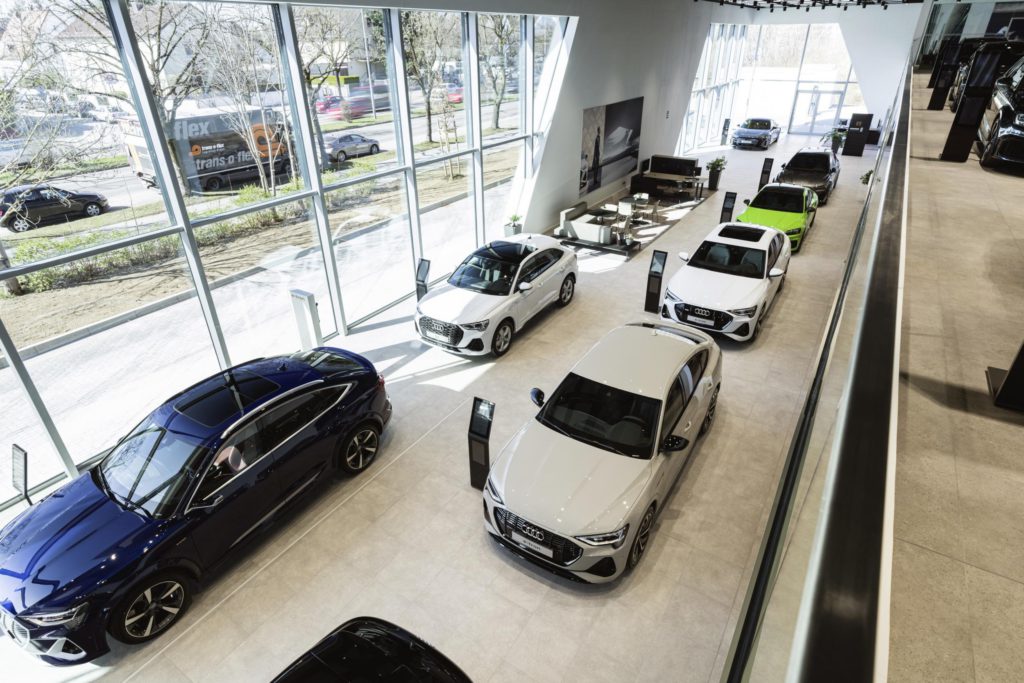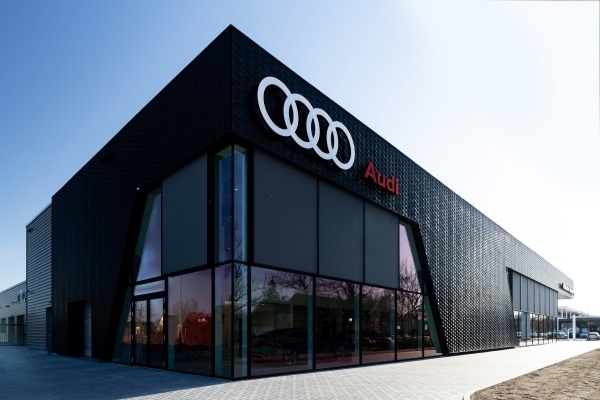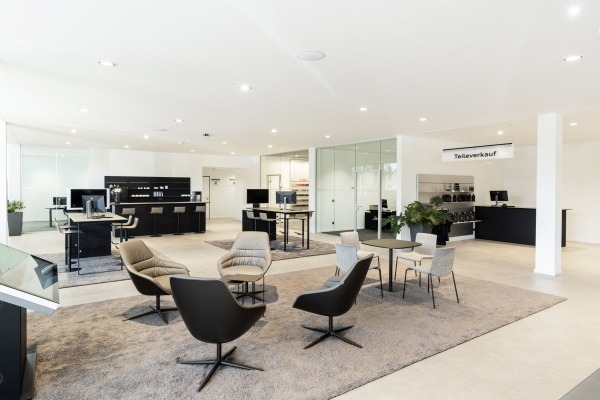Audi launches new sustainable flagship store
09 April 2021

Located in the Trudering district, the ‘Audi Progressive Retail’ (APR) concept elevates what consumers can expect from showrooms. The carbon-neutral store is the first in the world by the OEM to receive certification from the Deutsche Gesellschaft fÜr Nachhaltiges Bauen (German Association for Sustainable Building).
Carmakers like Audi are throwing their weight behind sustainability and digitalisation. From electrically-chargeable vehicles (EVs) to advanced connected technology, this is a transformational moment for the automotive industry. But importantly, these developments are not confined to the roads. Alongside factories and supply chains, showrooms are getting a makeover.
′Sustainability and digital networking’

At the new Munich site, APR will introduce the latest innovations from the fields of sustainability, architecture and digitalisation. Working with Berlin start-up Made of Air, the carmaker developed a CO2 neutral material for the building’s façade. The material used not only permanently captures atmospheric CO2 but features a brand-specific design.
A solar power installation covers the roof of the building, which generates power for on-site EV charging. A fast-charging point is available in the outdoor area, supplying either 75kw or 150kW, with five further stations located in the underground garage. During the day, electricity is stored in a battery system so that solar power can be used round the clock. Indoors, a smart lighting control system and sun-shielding ensure ideal illumination, all without the use of fossil fuels.
′In collaboration with dealers, we are consistently implementing sustainability and digital networking at this site. This enables us to offer a seamless, all-round positive customer experience,’ said Horst Hanschur, head of retail business development and customer services.
Digital design

Interactive modules and large-format displays will provide an enhanced and more attractive customer experience, according to Audi. Using model configurators, sales personnel will be able to create a photo-realistic presentation of different models. This includes a 3D rendering of options as well as vehicles available through other Audi MÜnchen sites.
For individual advice, potential customers will not need even to step foot inside the store. Using cloud technology and augmented-reality headsets, Audi Live customer service will bring their sales outlet experience into people’s living rooms.
However, the new Munich outlet will feature a more comfortable atmosphere with new furnishings for those still wanting the in-person experience. This will include warm colours, and high-class fragrances, making the showroom sound more like a day-spa.
Optimistic outlook
Germany, like most of Europe, is currently taking shelter from a third wave of COVID-19. Last month its government extended lockdown measures until 18 April. While new-car registrations increased in March, up 35.9%, this figure was inflated due to the anniversary of the first lockdown in 2020, when all business ground to a halt.

Many carmakers found themselves adapting to the closing of showrooms by investing in e-commerce solutions. Last year, Audi and its dealerships began integrating digital solutions for the purchasing of new and used models. While the online sale of new cars in stock at dealerships actually began in Germany, virtual consulting and service offers are also gaining importance. So why then invest in outlets like the one in Munich?
While digital spaces try to fill the void left by physical ones, there is still a heated debate around the closing showrooms in the first place. At the end of March, the Federation of Motor Trades and Repairs (ZDK) argued dealers should be allowed to reopen. They pointed out that a hairdresser, with a floor space of 10m2, is allowed one customer inside, while a car showrooms with a floor space of 500m2 must remain closed.
′Nobody understands why many car dealerships with their large areas still have to remain closed, while 10 square meters per customer are seen as unproblematic for the hairdresser,’ ZDK president JÜrgen Karpinski said at the time. ‘I do not know when the politicians who decide on the lockdown were last in a car dealership. It is urgent that they get an idea of ″‹″‹the situation on-site.’
But once showrooms do reopen, whether that be sooner or later, these spaces will not only need to live up to the environmental standard set by new EVs but be genuinely inviting. Once a vaccine rollout is complete, there will undoubtedly be a mixture of excitement and apprehension among consumers. Car showrooms must therefore come to meet both emotions. Exciting enough to compete with other businesses while providing a sense of necessary security in what will be a fragile return to normality.